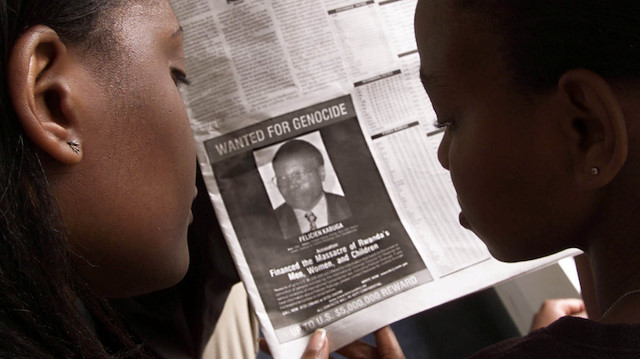
Kabuga's arrest marked the end of a more than two-decade long hunt that spanned Africa and Europe.
A Hutu businessman, he is accused of creating and making contributions to a fund that raised finances to pay the youth militias that would slaughter some 800,000 Tutsis and moderate Hutus, as well as importing huge numbers of machetes, according to the UN tribunal's indictment.
Kabuga had been an associate of president Juvenal Habyarimana, whose death in a plane shot down over the Rwandan capital Kigali in 1994 ignited the deep-rooted ethnic tensions between the Hutus and Tutsis. Two of his daughters married into Habyarimana's family, according to an amended indictment dated 2004.
One of Rwanda's richest men before the genocide, Kabuga controlled many of the central African nation's coffee and tea plantations and factories. He also co-owned Radio Television Milles Collines, whose radio station broadcast anti-Tutsi messages that fanned the ethnic hatred.
The scars of the genocide remain deeply etched in the Rwandan psyche.
"This is really good news that someone who planned and financed the genocide and has been hiding for a long time and now arrested. It is good news for everyone especially survivors," said Valerie Mukabayire, leader of AVEGA, a group of women survivors of the genocide.
Mukabayire, 64, said she lost family members including her husband. Her survivors’ group has slightly over 19,000 members.
"We were worried that his (Kabuga's) elderly age would impede justice but now we are happy that he is arrested," she told Reuters by phone.
Kabuga's arrest paves the way for him to come before the Paris Appeal Court and later be transferred to the custody of the international court, which is based in the Hague, Netherlands and Arusha, Tanzania.
The International Criminal Tribunal for Rwanda (ICTR) was established by the U.N. Security Council and closed in 2015. The International Residual Mechanism for Criminal Tribunals is now mandated to perform some functions carried out by the ICTR and the International Criminal Tribunal for the former Yugoslavia.
The ICTR was at the centre of efforts to set new standards in international justice, though Rwandan President Paul Kagame said it was too slow and too inefficient. Some critics said it was too focused on prosecuting Hutus.
"For international justice, Kabuga’s arrest demonstrates that we can succeed when we have the international community’s support," Mechanism Chief Prosecutor Serge Brammertz said in a statement.














